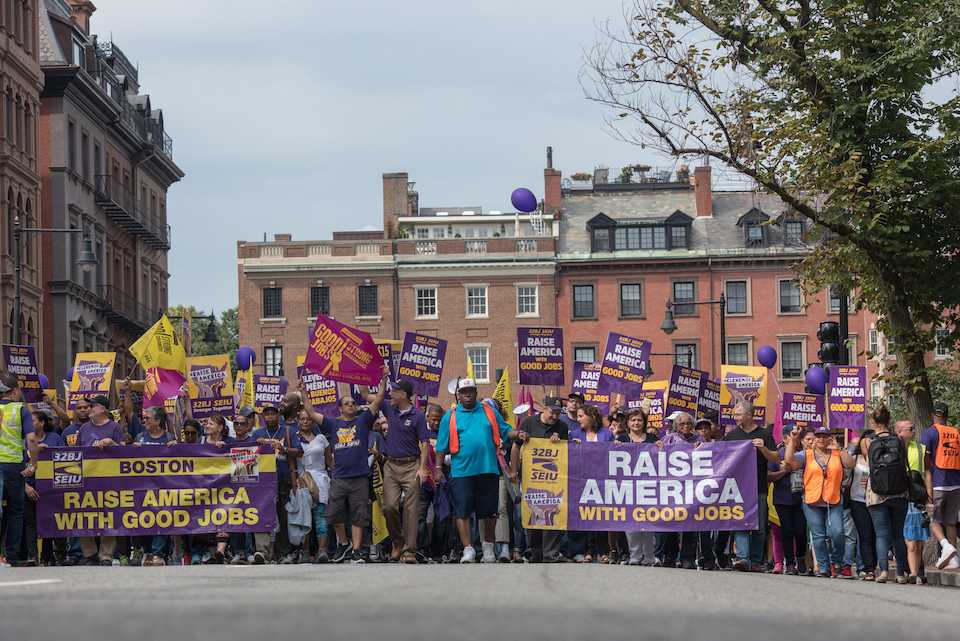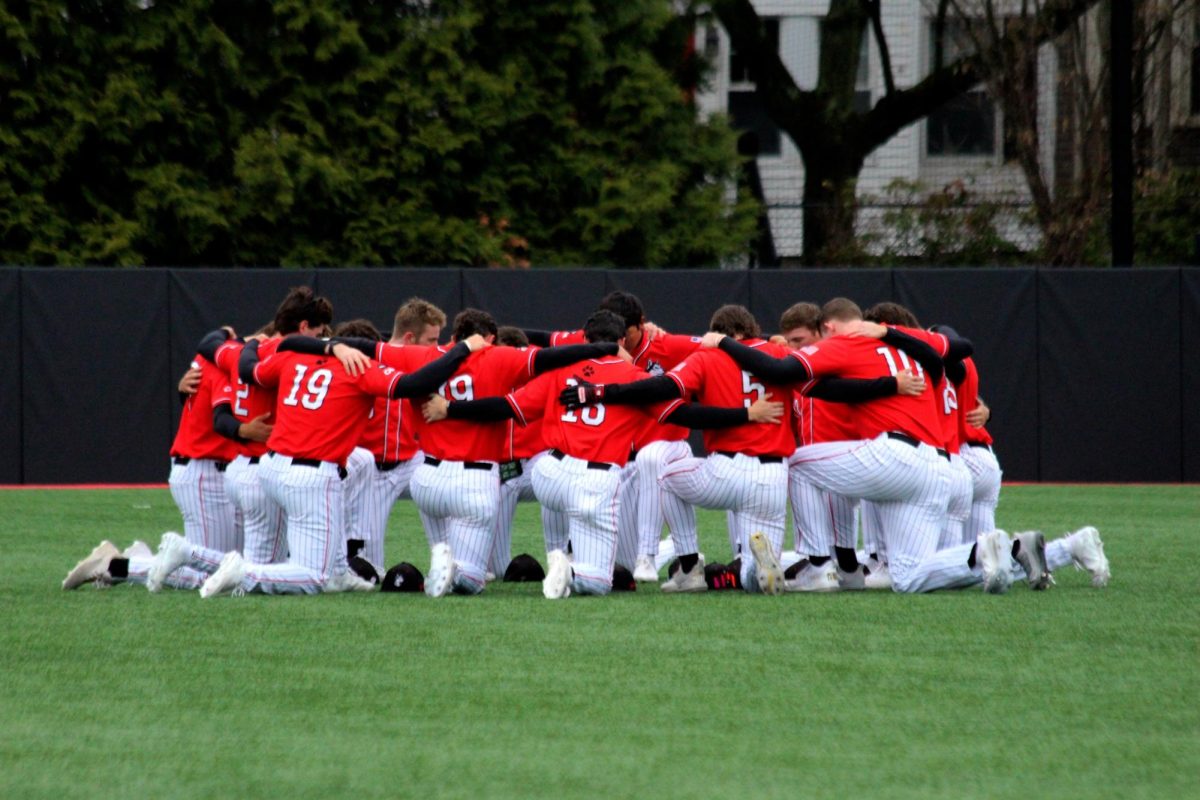Janitors to vote on new contract
October 6, 2016
Janitors in the Greater Boston Area will begin voting Thursday on whether to ratify a new contract that bargainers from their union accepted last week. The tentative contract includes increased wages, more full-time employment opportunities and expanded family health care for full-time employees over the next four years.
The bargaining committee of the local 32BJ chapter of the Service Employees International Union (SEIU) agreed to a tentative four-year contract Friday, Sept. 30 with the Maintenance Contractors of New England (MCNE), an association of the 20 largest building service contractors in New England. 32BJ represents more than 13,000 janitors in the Boston area, including Northeastern’s.
The 20 union officers and workers who make up the bargaining committee unanimously approved the contract, which the rest of the union members will vote on through Saturday, said 32BJ spokesperson Eugenio Villasante. The final decision will be made public Tuesday.
“In reality, we feel really good,” Juan Ramon Santana Samérde, a bargaining committee member who has been a janitor at Northeastern for eight years, said in an interview translated from Spanish. “We would feel better if we would have obtained all the benefits we wanted, but we have to remember […] not everything is accomplished by the toss of a stone—it has to be little by little.”
Hundreds of 32BJ janitors voted Sept. 24 to authorize a strike if an agreement with MCNE wasn’t reached by Sept. 30. This would have meant that the 2,000 office buildings serviced by 32BJ janitors—including higher education institutions, the Prudential Tower, 200 Clarendon (formerly the John Hancock tower) and the Massachusetts Bay Transportation Authority—would not be cleaned until an agreement was reached.
Villasante called the agreement a “historic contract” for Boston workers and their families.
“Overall this is a very, very strong package for thousands of people who need the money to feed their families, pay their rent, send their kids to school. It makes sure Boston is a place for people from all walks of life,” Villasante said.
After months of negotiations and concessions from both parties, MCNE spokesperson Matt Ellis said the tentative contract includes elements that both the union bargainers and the contractors wanted.
“We were able to, in a good economy, give back to the union most of what they were asking for, and able to do it in a way that will be cost effective for the contractors and ultimately provide great service to Boston’s commercial buildings,” Ellis said.
Workers demonstrated their commitment to improving their employment terms when they voted to authorize a strike, Villasante said.
“They don’t vote for a strike because they want to, it’s because they have to,” he said. “They have to fight to protect good jobs and turn the industry into something that is more stable.”
The threat of a strike didn’t change the state of MCNE’s negotiations, Ellis said, adding that MCNE felt the threat was unnecessary as it had agreed to the health care aspect of the package early on in negotiations.
“[MCNE sees] it as a tactic to get attention in the media and energize their membership base,” Ellis said. “It’s meaningless in terms of discussion.”
Ray Mendez, 28, has been working as a janitor at Northeastern for four years and said having two jobs is imperative for him to support his family.
“As of right now, I work two jobs—this one full time and another 27 hour part-time gig—to put food on the table,” he said. “I’m closing on a house right now, and I have a son on the way in December.”
The proposed agreement includes a 12 percent increase in service workers’ wages over the contract’s lifetime, meaning that Boston janitors will earn $20 an hour by 2020, according to 32BJ.
“We have heard the stories of many workers who have been able to get closer to the middle class and buy houses thanks to having a strong union job, a full-time job with good wages and yearly raises,” Villasante said.
However, not all workers agree that they are getting the best offer out of this contract. At a Northeastern janitors meeting late Wednesday night, Mendez expressed his dissatisfaction with the scheduled wage increases.
“A guy starting this month with $18.50 is going to be making $20.50 in four years. The economy will be different by then,” Mendez said. “The cost of living is going up, who knows how much that wage is actually going to be worth.”
Another aspect of the tentative contract would expand health care coverage to family members of full-time employees with no employee contributions. The previous contract required employees to pay $280 per month toward their health care, according to MCNE.
“Full family health care is something that is very important to the union and something that we were able to make work financially,” Ellis said.
Should the agreement be ratified, MCNE has promised to create hundreds of full-time job opportunities for service workers. This is similar to the 2012 contract agreement, which called for the addition of 680 full-time jobs. Since then, MCNE created more than 700 new full-time positions in the central business district.
Ellis said that the expansion of full-time jobs was partially due to the expanded capacity as more buildings are established and need to be maintained in places such as Kendall Square. In other cases, full-time work has replaced part time-work, which can be a trade-off because some part-time work is lost for another person to get a full-time job.
Not all workers have seen the benefits of this expansion.
“I’ve been working at this company for 11 years and have yet to reach full-time employment status,” Adriana Maya, who works part-time as a janitor at Northeastern, said in an interview translated from Spanish. “They do it that way so they don’t have to give you the benefits of a full-time employee.”
The proposed contract would also add to the pension and training funds, which is used to teach English, computer lessons and other skills. The agreement additionally includes new legal assistance benefits to help members with tasks such as buying a house or dealing with immigration issues.
“There is something [this contract] has proven, and that is that employers can be committed to make sure these jobs are good jobs and provide a high level of service,” Villasante said. “It is good for the industry and good for the workers.”
Carlos Ortiz, a union staff member for nearly three years, urged workers to vote and to keep fighting for higher wages at Northeastern’s Wednesday night meeting. He also called on students to use their voices to help the janitors’ situation, after the meeting.
“In a few years, you’ll all be off in positions of power—the government, CEOs,” he said in an interview translated from Spanish. “I beg you, don’t forget about the people who clean. Be professional with a conscience.”
Alejandro Serrano contributed to this report.
Photo by Scotty Schenck.
Translations by Alejandro Serrano and Leslie Hassanein.







